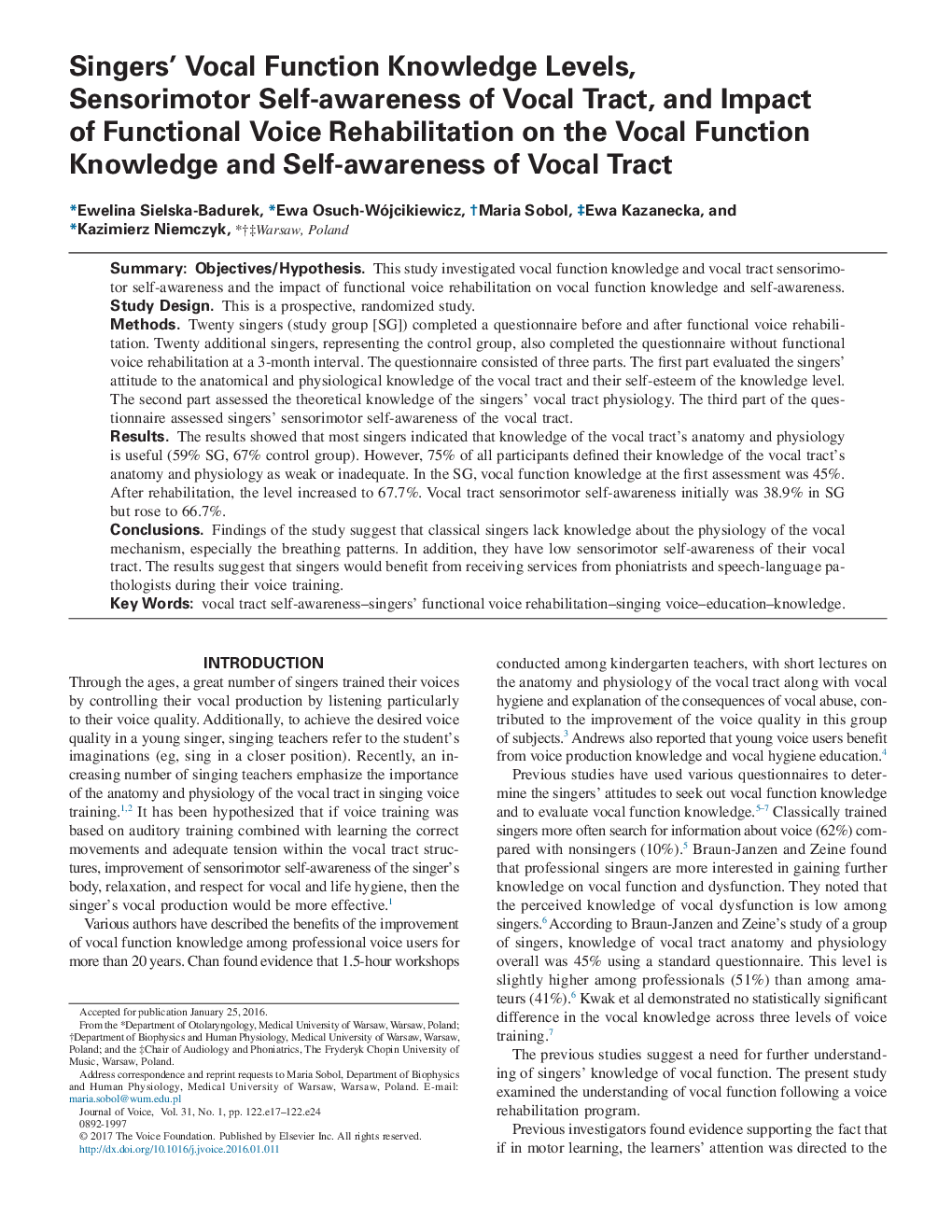| Article ID | Journal | Published Year | Pages | File Type |
|---|---|---|---|---|
| 5124347 | Journal of Voice | 2017 | 8 Pages |
SummaryObjectives/HypothesisThis study investigated vocal function knowledge and vocal tract sensorimotor self-awareness and the impact of functional voice rehabilitation on vocal function knowledge and self-awareness.Study DesignThis is a prospective, randomized study.MethodsTwenty singers (study group [SG]) completed a questionnaire before and after functional voice rehabilitation. Twenty additional singers, representing the control group, also completed the questionnaire without functional voice rehabilitation at a 3-month interval. The questionnaire consisted of three parts. The first part evaluated the singers' attitude to the anatomical and physiological knowledge of the vocal tract and their self-esteem of the knowledge level. The second part assessed the theoretical knowledge of the singers' vocal tract physiology. The third part of the questionnaire assessed singers' sensorimotor self-awareness of the vocal tract.ResultsThe results showed that most singers indicated that knowledge of the vocal tract's anatomy and physiology is useful (59% SG, 67% control group). However, 75% of all participants defined their knowledge of the vocal tract's anatomy and physiology as weak or inadequate. In the SG, vocal function knowledge at the first assessment was 45%. After rehabilitation, the level increased to 67.7%. Vocal tract sensorimotor self-awareness initially was 38.9% in SG but rose to 66.7%.ConclusionsFindings of the study suggest that classical singers lack knowledge about the physiology of the vocal mechanism, especially the breathing patterns. In addition, they have low sensorimotor self-awareness of their vocal tract. The results suggest that singers would benefit from receiving services from phoniatrists and speech-language pathologists during their voice training.
